
AI
22:33, 16-Nov-2017
Baidu unveils new AI-powered products, closer to be an AI company
By Gao Yun
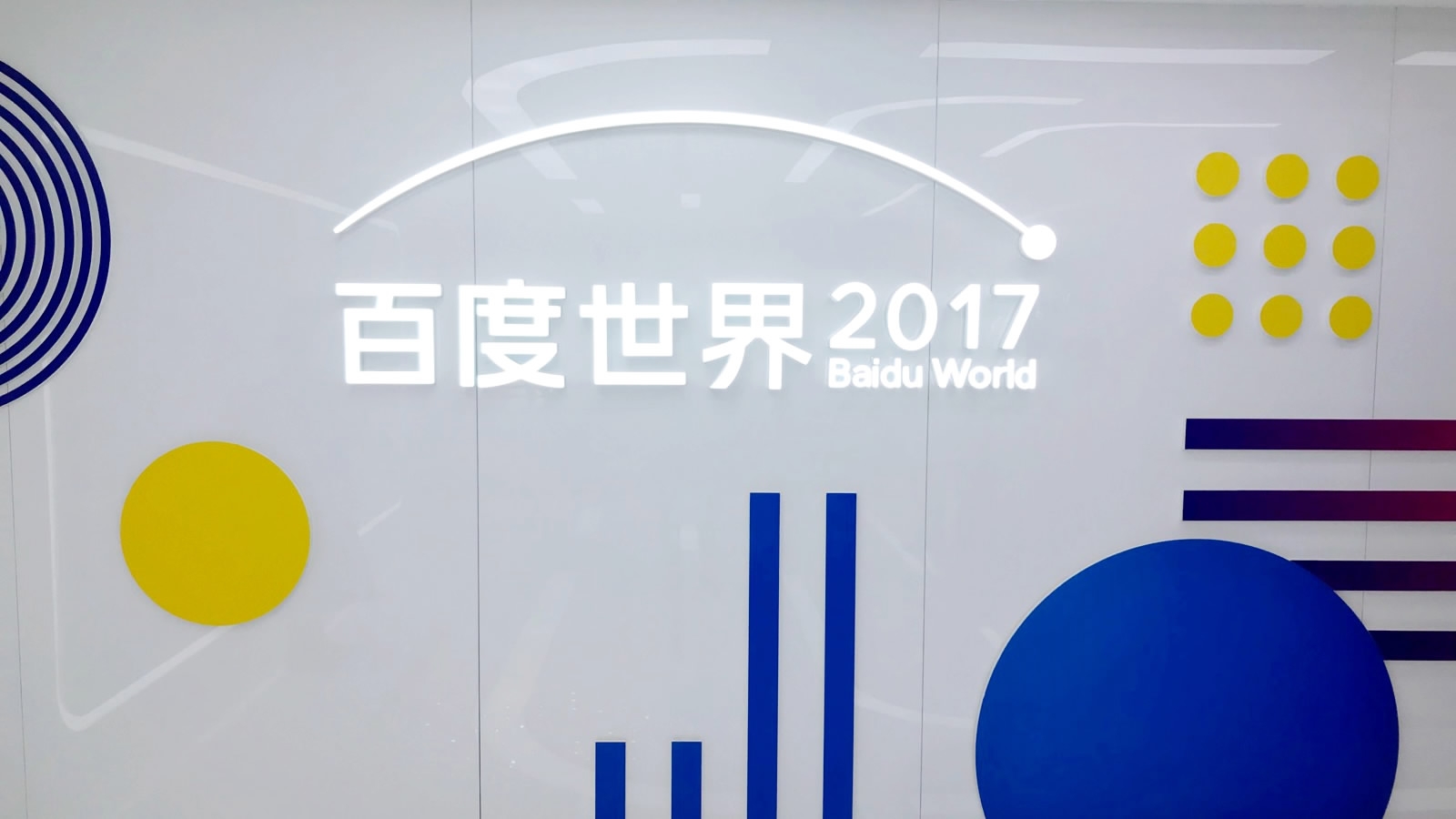
With this year’s theme “Bring AI to Life”, the Chinese Internet search giant Baidu launched a series of AI-powered products at the “Baidu World 2017” event in Beijing on Thursday, a step closer to its ambition to be an AI company as described by Robin Li, the co-founder, chairman and CEO of Baidu last year.
AI at home
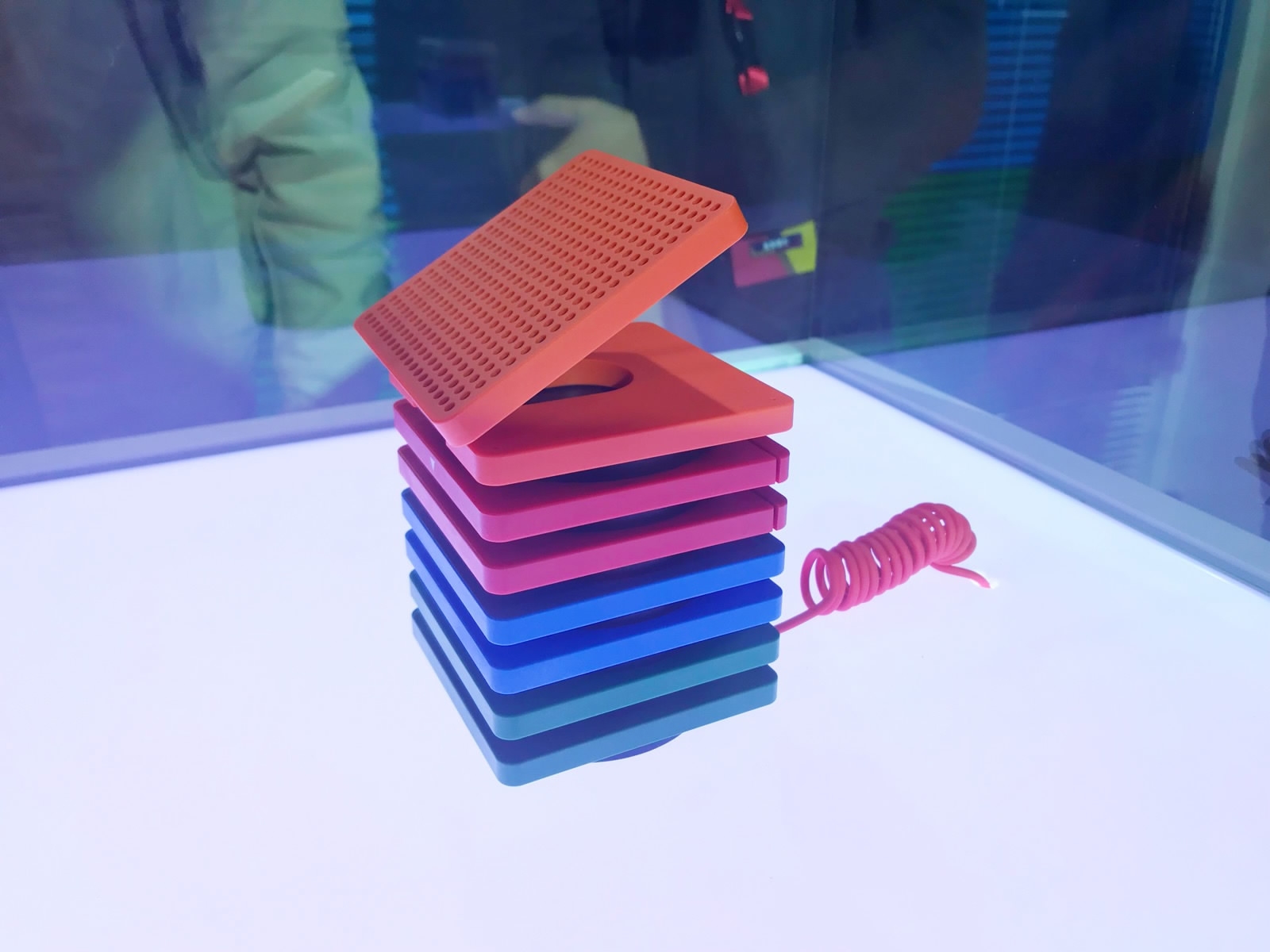
Raven H, Baidu's new smart speaker /CGTN Photo
Raven H, Baidu's new smart speaker /CGTN Photo
Raven H, the smart speaker of the new raven series, is like a stack of four-colored square blocks. Measuring 80mm in length and width, 105mm in height and 1.5kg in weight, Raven H is the first AI hardware product made directly by Baidu.
The smart speaker features a detachable, touch-sensitive LED display controller. With different pressing gestures on the controller, it can carry out different commands. For example, users can speak after a long press, double-click to play or pause music, and slide to switch to the next song.
Powered by the company’s latest voice interaction system DuerOS 2.0 and database, Raven H is far beyond a speaker, which allows users to give various voice instructions including asking general knowledge questions, playing music or even hailing a taxi.
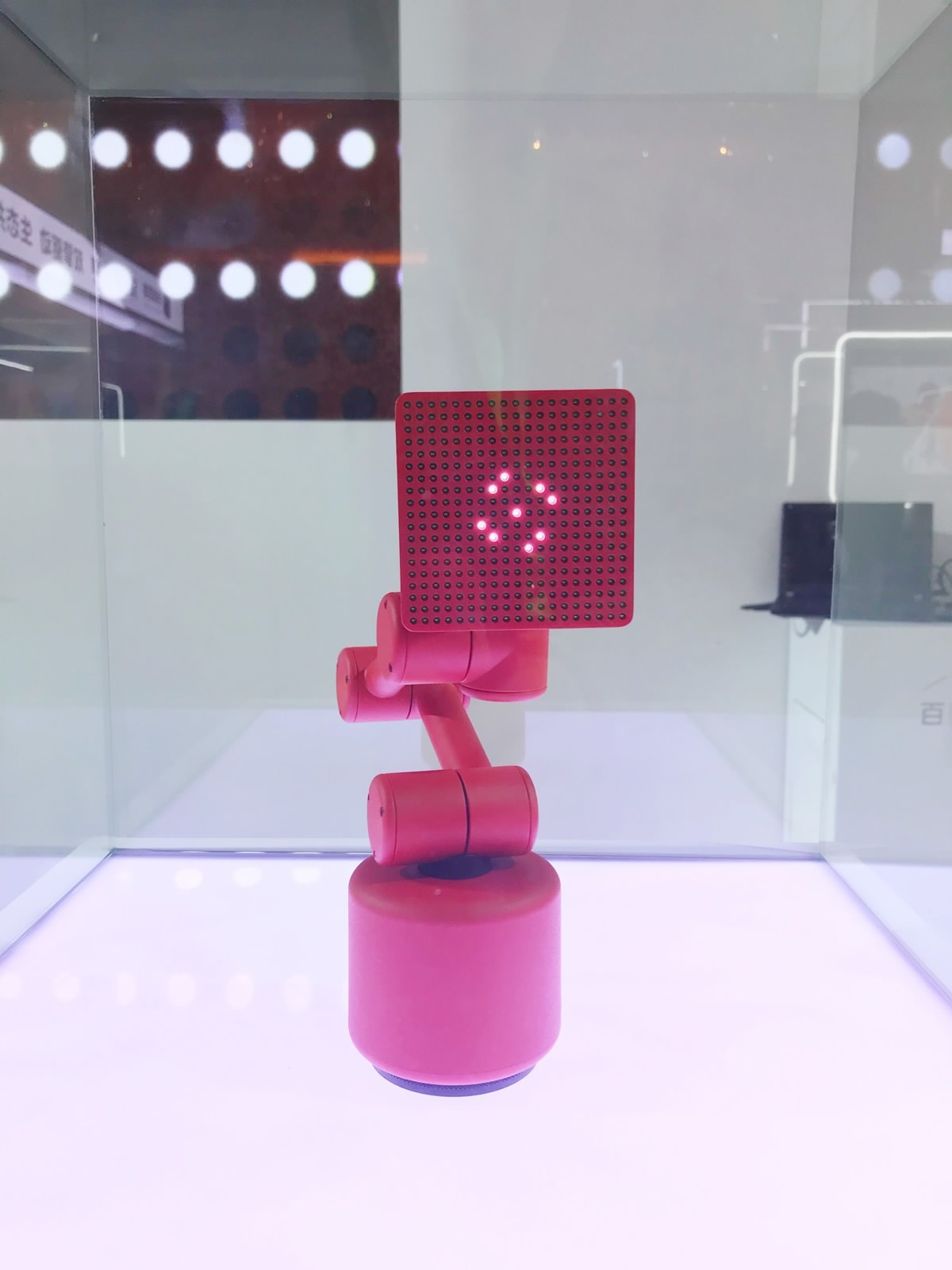
The smart speaker and its matched robotic arm /CGTN Photo
The smart speaker and its matched robotic arm /CGTN Photo
Priced at 1,699 yuan (about 256 US dollars), the smart speaker will be available on the market in December. A matched robotic arm will also be available for sale next year.
Along with Raven H, two robots of the Raven series will soon come to the market to make your home smarter – Raven R, an upgrade of Raven H and the world’s first six-axis automated robot with emotional intelligence. Raven Q, a mature home robot, integrates facial recognition, computer vision, and Apollo self-driving technologies.
AI on the road
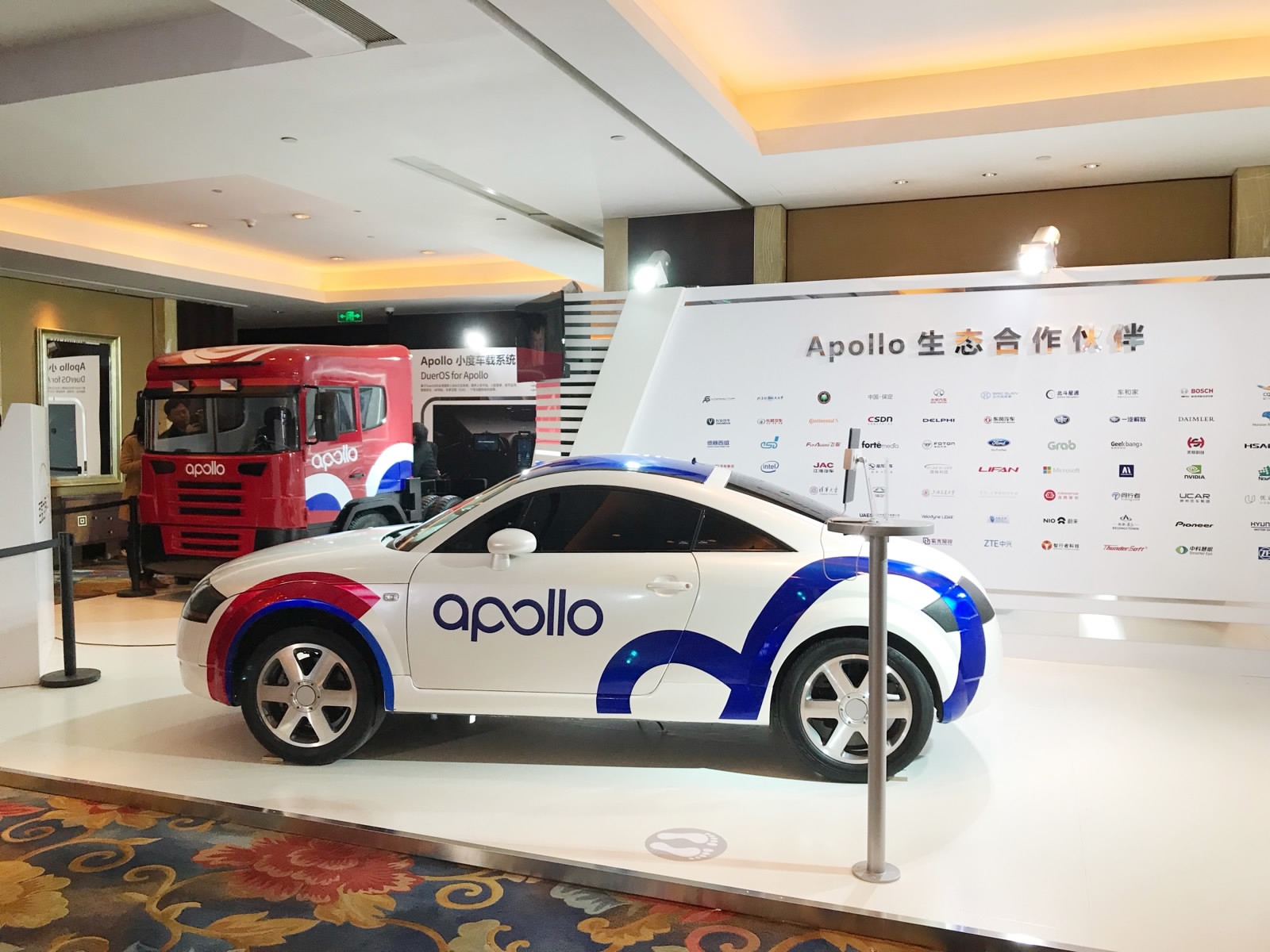
Demonstration of the Apollo system at the “Baidu World 2017” event /CGTN Photo
Demonstration of the Apollo system at the “Baidu World 2017” event /CGTN Photo
Apollo, Baidu’s open-source autonomous driving platform is to partner with King Long, a major Chinese bus manufacturer to produced autonomous vehicles by the end of 2018, said Li.
Over 6,000 developers are now using the Apollo platform, said Li, and 1,700 of them have taken part in the Apollo project. Over 100 partners have applied for the access to the open data of Apollo, making it a very active open system.
Apollo will also work with China’s Xiongan New Area to build a world’s leading city with intelligent transportation. It aims to make Xiongan a city with the world’s lowest traffic accident rate and highest happiness index in commuting.
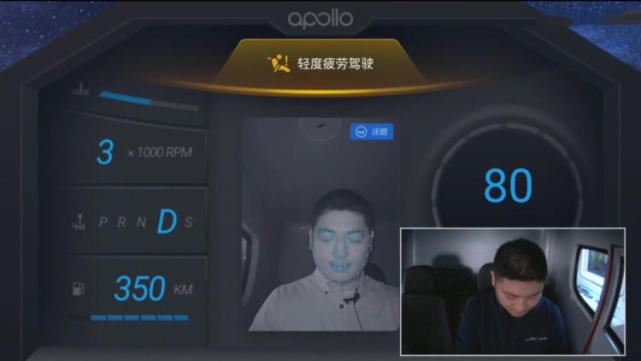
The monitoring system by Baidu to detect drivers' fatigue state /Baidu Photo
The monitoring system by Baidu to detect drivers' fatigue state /Baidu Photo
Li demonstrated a monitoring system of drivers' fatigue state at the event. Based on the company’s image recognition technology, the system can alert drivers via infrared face recognition when they are distracted by the cell phone, feeling tired and yawning, or too tired to keep their eye open. The system will play some cheerful music to refresh the drivers or even navigate them to the nearest rest area if it finds them severely drowsy driving.
The company also showed other AI-powered technologies and products at the event, such as an app for translation, a facial recognition system which can be used in registration, entrance guard, and getting aboard. The on-site staff told CGTN that Baidu is cooperating with the government to establish an information database of criminals, based on which the facial recognition system can be installed at subway stations to identify the suspect.
4km

SITEMAP
Copyright © 2018 CGTN. Beijing ICP prepared NO.16065310-3
Copyright © 2018 CGTN. Beijing ICP prepared NO.16065310-3